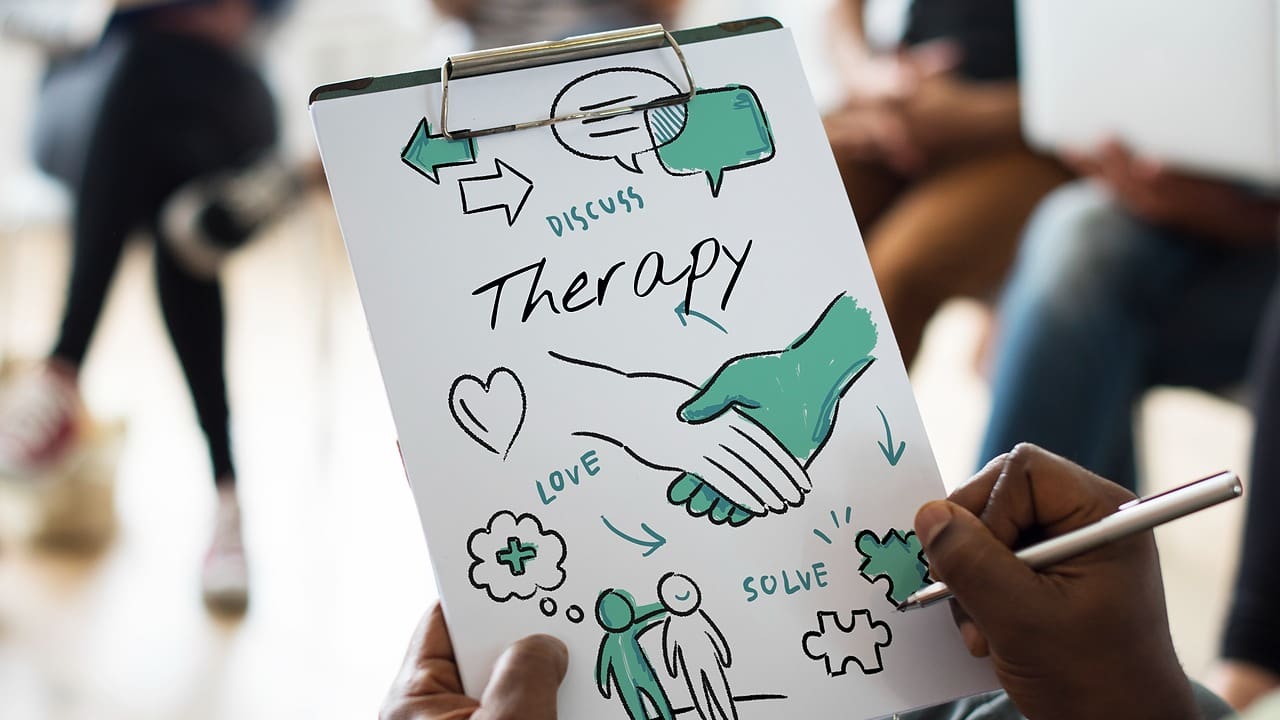What Is Psychiatry? A Patient Friendly Overview
Psychiatry is a type of medical care that helps people understand, treat, and prevent problems with mood, anxiety, thinking, behavior, sleep, and daily life. You work with a clinician who listens, learns about your symptoms, helps set your goals, and creates a plan to help you feel and function better. If you have ongoing sadness, panic, trouble sleeping, loss of interest, irritability, trouble focusing, or high stress, psychiatry offers personalized, evidence based ways to help you improve your daily life.

One of psychiatry’s main strengths is looking at the whole picture. Clinicians pay attention to changes in mood, sleep, energy, focus, and stress, as well as your medical history, medications, and lifestyle. Treatment often happens in steps: first, easing urgent symptoms; next, building strong coping skills; and finally, helping you keep your progress so you can get back to your usual routines and relationships.
Psychiatry vs. Psychology: Complementary Paths to Wellbeing
Psychiatry is a branch of medicine that diagnoses mental health conditions, offers therapy, and prescribes medication when needed. Psychology, on the other hand, uses talk therapy and behavioral techniques to help people change their thoughts, feelings, and habits. Many people find that working with both a psychiatrist and a psychologist is helpful. The psychiatrist manages medical aspects and safety, while the psychologist or therapist leads regular sessions focused on building practical skills.

In real life, this team approach helps you understand why you have certain symptoms and what you can do about them. The medical side looks for causes in your body or environment, checks if your medication is working, and keeps track of your progress. Therapy turns your goals into everyday steps, such as changing negative thoughts, facing fears, practicing relaxation, and improving how you communicate. By working together, these professionals create a plan that fits your needs.
Is Psychiatry a Science? What Evidence Based Care Looks Like
Inside a Psychiatry Visit: What to Expect and How It Flows

Your first visit is about getting to know you, not just your symptoms, but also how they affect your work, school, relationships, and daily life. You will talk about what has changed, when it started, what helps, and what makes things worse. You may fill out short forms about your mood, anxiety, sleep, and how you are doing. By the end, you should have a clear plan and know when to follow up.
Treatment typically blends:
- Psychotherapy: structured conversations that teach practical skills for managing thoughts, behaviors, and stress.
- Medications (when indicated): chosen for your symptom profile and medical context, with careful dosing and monitoring.
- Lifestyle strategies: consistent sleep routines, movement, nutrition, and pacing techniques that support brain and body health.
- Follow ups: regular check ins to track progress, side effects, and next steps, so small issues don’t become big setbacks.
Early progress often means better sleep, less intense anxiety, and improved focus. These changes help you build momentum for deeper, lasting improvements.
Preparing for Your Appointment: Make Every Minute Count
- List the top concerns and when they began.
- Note patterns, triggers, and what helps (even a little).
- Bring a current list of medications and supplements with doses.
- Collect recent labs or records if available.
- Set concrete goals (for example: “fewer panic episodes,” “sleep before midnight,” “more morning energy”).
How Long Are Psychiatry Appointments ? Timing and Rhythm
First appointments are longer so you and your clinician can talk about your history, safety, and goals in detail. Follow-up visits are shorter and focus on your progress and making small changes. At the start, visits may be closer together to help you improve and watch how medications work. As you get better, visits are usually spaced out more. Many clinics offer online portals or phone lines so you can share concerns or ask for small changes between visits.
Integrative Psychiatry: Whole Person Care That Sticks ?

Integrative psychiatry looks at the mind, body, and environment as parts of a whole. It recognizes that sleep, movement, nutrition, stress, and social connections all play a role in mental health.
Here are some helpful steps:
* Try to keep regular sleep and wake times, and use a simple routine to help you wind down before bed. This can help your body’s natural rhythms.
* Gentle, regular movement such as walking, stretching, or light strength exercises can help boost your mood, focus, and sleep.
* Managing stress with slow breathing, mindfulness, or short grounding exercises between tasks can make a difference.
* Nutrition patterns that stabilize energy and support brain function.
This approach works alongside therapy and, if needed, medication to build a strong foundation. Plans are made together with you and respect your culture, focusing on small, realistic changes that bring big benefits over time.
Nutritional Psychiatry: How Everyday Eating Shapes Mood and Energy ?

Diet alone cannot cure mental health issues, but it can strongly support your treatment. Many people feel better after making simple, lasting changes like these:
- Anchor meals with protein, fiber, and healthy fats to smooth blood sugar and reduce irritability.
- Add colorful vegetables and fruits for micronutrients and antioxidants that support neural health.
- Prefer minimally processed foods and whole grains to reduce energy crashes.
- Stay hydrated and time caffeine earlier in the day. Personalization is important. Your clinician can help match your nutrition plan to your culture, budget, and daily routine so changes are enjoyable, practical, and realistic.
Community Psychiatry: Accessible, Coordinated Support Close to Home

Community psychiatry arranges care to fit your daily life. Services focus on easy access and ongoing support, like flexible scheduling, therapy referrals, support groups, peer help, and crisis resources. Care teams work with your primary doctor, schools, or community groups when needed to keep your care connected. The goal is to provide steady, caring help that fits your needs.
Geriatric Psychiatry: Thoughtful Care for Older Adults

Mental health needs can change as people get older. Geriatric psychiatry helps with low mood, anxiety, grief, sleep problems, and memory issues, while also considering other health problems, pain, and how medicines interact. Care is gentle and well organized, with simple treatment plans, safety steps to prevent falls, ways to manage sleep and pain, and support from family or caregivers if needed. The main goals are comfort, independence, and enjoying daily life.
Forensic Psychiatry: Clear Assessment in Legal or Safety Contexts
Forensic psychiatry deals with mental health in legal or safety situations. The focus is on clear assessment, lowering risks, and making supportive plans. Patients can expect respectful communication, privacy within the law, and help finding services that support stability and safety. The main goal is to help people move forward.
Is Psychiatry Primary Care ? Collaboration and Boundaries
Psychiatry is not primary care, but working together is important. Psychiatrists work with your main doctor to review lab results, avoid medication problems, and watch for medical issues like thyroid problems or sleep apnea. Good communication keeps your care safe and organized, and referrals help you get therapy, special tests, or community support without losing progress.
Online Psychiatry: Safe, Convenient Care with the Same Standards

Telepsychiatry uses secure video calls for appointments and follow ups, with the same standards as in person visits. This includes a full history, safety checks, shared decisions, and coordination for therapy, lab work, or primary care when needed. Many people like the convenience, such as less travel, easier scheduling, and more privacy, while still getting careful, evidence based care wherever they are.
Liv Hospital Psychiatry
Diagnosis and treatment of psychiatric problems are carried out at Liv Hospital Psychiatric Clinic in the light of current, scientific and medical developments.
Personalized treatment
Liv Hospital psychiatrists and psychologists evaluate and diagnose the patient with a teamwork approach. Experienced specialist doctors listen to you carefully and follow a specially arranged treatment protocol according to your needs.
Medication and psychotherapy
Clinical interviews, examinations, laboratory tests and imaging methods are used for diagnosis. In the detected diseases, treatment is carried out with medication and psychotherapy (spiritual treatment) methods.
For more information about our academic and training initiatives, visit Liv Hospital Academy
Frequently Asked Questions for Psychiatry
Will AI replace psychiatry?
No. Technology supports care but does not replace clinical judgment, empathy, or the therapeutic relationship.
What is community psychiatry?
An accessible, coordinated model that connects patients with therapy, support resources, and crisis options close to home.
What is integrative psychiatry?
A whole person approach combining therapy, lifestyle changes, and, when useful, medication to build resilience and sustain improvements.
Is psychiatry considered primary care?
No, but it coordinates closely with primary care to ensure safe, cohesive treatment and to monitor medical contributors.
Are psychiatry visits long?
Initial evaluations are longer; follow ups are shorter and focus on progress, side effects, and next steps. Frequency typically decreases as symptoms stabilize.
How should I prepare for a psychiatry visit?
List main concerns, timelines, triggers, current medications/supplements, and concrete goals; bring prior records if available.
Is psychiatry evidence based?
Yes. Care follows research guided practices, standardized assessments, and treatments proven to be safe and effective, adapted to each person’s needs.














